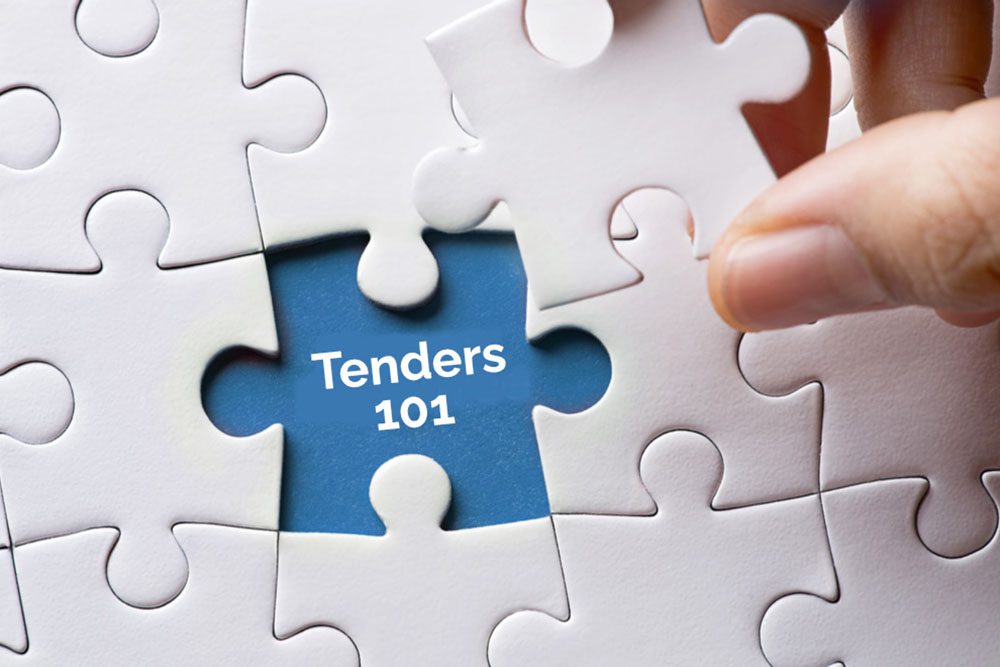Can you imagine compiling a tender without Subject Matter Experts (SMEs)?
It’s just not possible. SMEs possess specialised knowledge and expertise that is crucial to creating winning tender responses. However, this requires effective collaboration between Bid Teams and SMEs, which can be challenging.
In this article, we explore how Bid Teams can strengthen collaboration with SMEs in three key areas of the tender process. We discuss the challenges and strategies needed to ensure a successful partnership. Additionally, we delve into the latest technology that can take teamworking to the next level and help secure more business.
Engaging with Subject Matter Experts
Engaging with SMEs is a critical part of the tender process, but it can also present several challenges for Bid Teams. These challenges will vary depending on the culture, structure, and size of the business. In some cases, Bid Teams may be required to work with a large number of SMEs, which can be time-consuming and demanding.
Here are some of the common challenges that Bid Teams face when working with SMEs:
- Coordinating work across different divisions, geographies and time zones
- Managing requirements for multiple disciplines and areas of expertise
- Having no seniority or direct line management of SMEs
- Ensuring that tender work is prioritised and deadlines met
- Generating high-quality tender responses that effectively address all requirements.
Now let’s take a look at the three stages of the bid management process and how to engage with SMES.
Stage 1: Preparing for Bids
This involves the initial securing of Subject Matter Experts and the building of a comprehensive Knowledge Bank or Bid Library.
Identifying Subject Matter Experts
When preparing a tender submission, there are countless questions that need to be addressed, covering a wide range of business areas. Identifying the right SMEs to involve in the process can be a daunting task, especially for large organizations with dispersed teams across different divisions and locations.
To ensure the best possible outcome, it’s critical to select SMEs with the appropriate knowledge and expertise related to the tender requirements. This might include areas such as finance, human resources, corporate responsibility, health and safety, pricing and product.
In addition, the availability of SMEs to participate in the bid process will be an important consideration. Each SME will have their own job responsibilities, so it’s important that they have the capacity to allocate time within their busy schedules and workloads to respond adequately to tender requests.
Securing Subject Matter Experts Support
Securing support from SMEs is crucial for the success of any tender submission.
However, SMEs will have their own busy roles and responsibilities, with limited time available to contribute to tenders. They also often hold senior positions within an organisation. This can therefore, be challenging for Bid Managers to secure their commitment without direct line management responsibility.
Steps to secure SME support include:
- Senior Management taking the lead to secure SME commitment through the company’s bid management strategies, objectives and processes.
- Bid related work to be built into SMEs’ job descriptions and key performance indicators (KPIs). This ensures SMEs dedicate adequate time and resources to meet the high standards of quality required for successful tender submissions.
- Bid Managers and the Bid Team engaging with SMEs through initial onboarding meetings. The approach taken in these meetings will set the tone for future successful collaborations. During these meetings, SMEs need to be fully briefed on the tender process, challenges, their roles and responsibilities.
- Engaging with SMEs early in the tender projects, giving them plenty of warning to be able to effectively contribute.
“Well-connected teams see a productivity increase of 20–25%.” McKinsey Report
These actions will help SMEs gain a deeper understanding of the importance of tenders to the business and its financial goals. Future bids are then more likely to run smoothly and be completed to the best of everyone’s abilities.

Pre-Bid Content Creation
Despite their expertise, SMEs may struggle to participate comprehensively within the set timescales of a tender project. This may be especially true, where information requests are delayed or there are other demands on the Bid Team. To address these challenges, proactive pre-bid content generation can be a game-changer.
Therefore, building a comprehensive Knowledge Bank or Bid Library of content is essential to bid management best practices. Much of the required information and documentation is standard across all tenders and can be developed prior to bidding.
By creating, reviewing, and updating standard content during quieter times, SMEs can work without being under pressure and beholden to tight deadlines.
They may still need to be involved in finessing tender responses or answering more detailed questions. But with the majority of the work already done, they have more time to focus on finessing their responses.
Moreover, building the Bid Library can help Bid Teams and SMEs establish stronger relationships while working towards a common goal. Thus, leading to more successful tenders in the long run.
Stage 2: Compiling Tender Submissions
This involves completing the Tender Selection Questionnaire (SQ), Invitation to Tender (ITT) within set timescales. The Bid Team and SMEs are responsible for compiling high quality, competitive responses that secure high evaluation scores and secure the contract.
Subject Matter Expert Actions
It is essential to mobilise the tender project as soon as the opportunity is approved for bid action. Bid Teams need to involve SME’s as early as possible in the process, through notification alerts and invitations to project kick-off and progress meetings.
Ongoing, regular communication between the Bid Team and SMEs will help ensure that everyone involved understands their roles and responsibilities.
The Bid Team will need to rapidly identify and allocate information requests to relevant SME’s, giving them adequate time and clearly defined deadlines. Activities will need to be closely monitored and reminders sent to ensure delays are minimised. Any issues or concerns will also need to be identified and addressed promptly.
This is no small feat for any Bid Team with a sizable number of SMEs to coordinate and large volumes of content to compile. It requires careful management and reliance on good persuasion skills to keep everything on track.
“97% of employees believe communication impacts their task efficacy on a daily basis.” CMSWire

Informed Subject Matter Experts
To be able to deliver comprehensive contributions to tenders, SME’s will need easy access to relevant information and data. This will include:
- Procuring Agency Executive Summary & T&Cs
- Evaluation Criteria & Scoring Matrix
- Relevant tender questions
- Win Themes & Risks
- Competitor Insight
- Last scores & feedback
- Sales Team Executive Summary
This information will ensure SMEs are well-informed and understand the requirements and weight given to individual questions. In addition, they will be able to more easily identify any nuances in questions and respond accordingly to secure higher evaluation scores.
Quality Control
Ensuring quality control is a critical aspect of engaging with SMEs during the bid process. Bid Teams need to ensure that all tender responses completed by SMEs meets the necessary standards and is of the highest quality. This includes reviewing content for accuracy, completeness, and consistency.
Draft responses should be internally tested against scoring criteria, with indicative scores given. Responses that receive low scores will require further work and input from SMEs. Collaborating with SMEs effectively and efficiently at this stage will positively impact the quality of the end product.
Moreover, all work must be properly documented and tracked, including changes and revisions. It is also necessary to secure SME sign-off and approvals before content is included in the final tender submission.
Stage 3: Review & Improve Bids
This involves reviewing results to establish deeper learning and determine areas for improvement for future bids.
Subject Matter Experts Review & Feedback
It is important that time is allocated to undertake comprehensive performance reviews once tenders are submitted and decisions received. Ideally these reviews should involve the Bid Team, Approvers and SMEs. This will ensure feedback and analysis is thorough and beneficial.
Consideration should be given to the:
- Bid process & extent of team working
- Client decision & feedback
- Won & lost outcomes (including competitor review if lost)
- Response quality & evaluation scores.
All findings need to be documented and shared with all stakeholders to provide ongoing learning and development.
Identify Areas for Improvement
The performance analysis will help identify strengths and weaknesses and determined areas for improvement. This may include:
- Further review of bid processes and working efficiencies as well as supporting technology and tools used to manage activity.
- Building better engagement and collaboration between teams
- Needs for further education, training and upskilling. For example, an SME may know their subject in depth but may struggle with interpreting question nuances and writing with flair and skill.
- Review of individual tender questions and responses. Otherwise, there will be a tendency for Bid Teams to repeatedly re-use existing low scoring responses, without realising the consequences. This may also include developing stronger competitive differentiation within tender responses.
SME’s feedback and ideas can play an important role in establishing areas for content and process improvements. Understanding what SMEs need to work better with the Bid Team, needs to be established and actioned.
Ongoing improvement plans will help establish stronger motivation, commitment and accountability among team members. And ultimately deliver improved quality responses and win rates.
Celebrate the Tender Wins
Finally, it’s important to provide recognition for the work undertaken by SMEs and acknowledge their contributions to winning bids.
Ideally individual and team performance reviews should include elements focused on tender involvement. Any bonuses can then include an element attributed to this work.
Contract wins can be acknowledged and celebrated company-wide through intranet, newsletters and company meetings.
“Employees who feel more included in workplace communication are almost 5 times more likely to report increased productivity.” McKinsey Report
Technology Support
Another critical element to ensure SMEs are fully engaged in the tender process is to provide them with the right technology and tools.
A dedicated Bid Management solution, such as TenderEyes, offers both Bid Teams and SMEs many advantages in their collaboration and bid activities.
It provides an end-to-end integrated solution for the whole bid journey from tender sourcing through to submission and contract delivery.
This ensures:
- Information & documentation can be easily stored, accessed and reviewed by team members.
- Communications and collaboration between Bid Teams and SMEs is deeper and easier.
- Tasks & information requests can be easily assigned, monitored and completed.
- Tender content can be centrally generated, reviewed, updated and improved.
- Tender submission creation is faster with the use of sophisticated search and auto-population AI tools.
Both Bid Teams and SMEs are empowered to collaborate and work more efficiently and effectively to deliver quality competitive tender submission with improved win probabilities.








